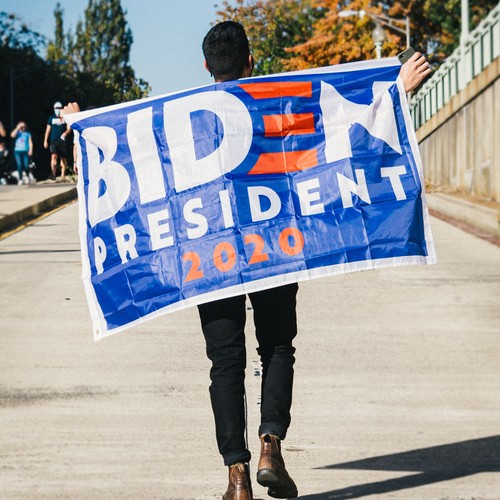The US government is offering training, workshops, handbooks and, most importantly, money, to encourage countries to block the purchase of Chinese 5G equipment.

The Biden administration appears determined to continue former President Trump's campaign against Huawei specifically and China in general, albeit with a much different approach.
The Trump administration focused on punitive measures to encourage other countries to ban equipment from Chinese suppliers like Huawei and ZTE, but the Biden administration is offering a number of incentives to produce the same result.
Biden's State Department has publically made no mention of Trump's "Clean Networks" initiative that sought to create a list of operators and countries that wouldn't use equipment from Chinese suppliers. But according to the Wall Street Journal, the Biden administration is now pivoting to a strategy that involves providing financial incentives and other enticements to countries that agree to block Chinese-supplied telecom equipment from their 5G networks.
The Journal reported that the US government is offering training, workshops and handbooks to policymakers in places like Central and Eastern Europe to encourage them to shun Chinese gear. More importantly, US lawmakers are working to provide direct funding to smaller countries that are on the fence on the issue, to help them purchase telecom equipment from companies considered trustworthy, including Samsung, Ericsson and Nokia.
The effort represents a counter to China's Belt and Road investment program, wherein Beijing offers money to countries to build highways, ports and other infrastructure.
"The Biden-Harris administration views 5G security as a high priority," Stephen Anderson, an acting State Department deputy assistant secretary overseeing its outreach efforts on telecom and technology, told the WSJ. He said US officials would advise other countries on the costs, regulations and cybersecurity considerations needed to build 5G networks in their efforts to stem purchases of Huawei and other Chinese equipment.
US officials and others argue such equipment supports Chinese espionage, allegations the Chinese vendors themselves dispute.
Already the Biden administration has touted some progress. According to FedScoop, the US and Albania agreed this week to coordinate the development of 5G in a block to Chinese equipment.
The geopolitical developments come amid a meeting of the Group of Seven industrialized nations this week that included the unveiling of a "Build Back Better World" infrastructure initiative. That's also part of Biden's efforts to improve ties with US allies that were strained under the Trump administration.
Even within that clique, some relationships may be strained. For example, a Financial Times article indicated concern among US policymakers of the UK's aggressive stance toward American Internet giants like Facebook and Google.
Related posts:
— Mike Dano, Editorial Director, 5G & Mobile Strategies, Light Reading | @mikeddano
About the Author(s)
You May Also Like










